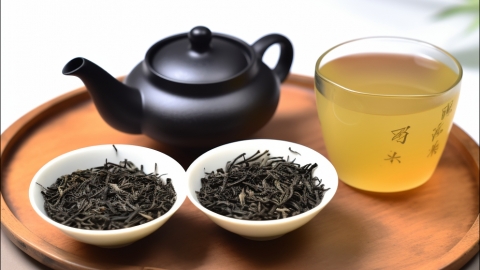What are the effects, benefits, and side effects of buckwheat tea?
Generally, the functions and benefits of buckwheat tea include regulating blood sugar, reducing fat, dilating blood vessels, delaying aging, and protecting the liver. Its potential side effects may include increased hunger, gastrointestinal discomfort, body chilliness, menstrual disorders, and an increased risk of hypotension. The detailed analysis is as follows:

I. Functions and Benefits
1. Regulating Blood Sugar
Buckwheat tea contains a certain amount of inositol and flavonoids, which can promote insulin secretion, thereby helping regulate blood sugar levels, improve glucose tolerance, and assist the body in lowering blood glucose levels.
2. Reducing Fat
Buckwheat tea is rich in dietary fiber, which can promote intestinal peristalsis, absorb water and swell, soften stools, aid in the elimination of waste from the body, and simultaneously promote gastrointestinal motility to help the body burn calories.
3. Dilating Blood Vessels
Buckwheat tea is rich in rutin, which can improve vascular smooth muscle and dilate blood vessels to some extent. Additionally, it has a vasodilatory effect that can improve blood circulation and help prevent cardiovascular and cerebrovascular diseases.
4. Delaying Aging
Buckwheat tea contains abundant vitamin E, vitamin C, and flavonoids, which have strong antioxidant properties. These components can effectively remove excess free radicals from the body, prevent oxidative damage, and delay aging.
5. Protecting the Liver
The flavonoids in buckwheat tea have certain therapeutic effects on acute and chronic hepatitis, fatty liver, and toxic liver damage caused by substances such as galactosamine and CCl4, thus offering hepatoprotective benefits.
II. Side Effects
1. Increased Hunger
Buckwheat tea can promote digestion and metabolism. Long-term consumption or drinking on an empty stomach may increase hunger and even cause stomach cramps. It is recommended to avoid drinking large amounts of buckwheat tea when hungry to reduce discomfort.
2. Gastrointestinal Discomfort
Buckwheat tea is cold in nature, and long-term consumption may exacerbate coldness in the spleen and stomach. Symptoms such as abdominal pain, acid reflux, belching, and persistent diarrhea may occur. It is recommended that individuals with weak spleen and stomach function should consume buckwheat tea in moderation or avoid it altogether.
3. Body Chilliness
Buckwheat tea is cooling in nature, and long-term consumption may worsen conditions of qi and blood deficiency or excess yin with deficient yang. Symptoms such as cold hands and feet, cold intolerance, and fatigue may occur. Individuals with a cold constitution should consume buckwheat tea cautiously to avoid exacerbating symptoms of body chilliness.
4. Menstrual Disorders
Buckwheat tea is cool in nature and may stimulate the menstrual cycle, causing cold uterus, dysmenorrhea, or irregular menstruation. Women should consume buckwheat tea in moderation and avoid drinking it during menstruation or when they have a cold constitution.
5. Increased Risk of Hypotension
Buckwheat tea has a certain blood pressure-lowering effect. People with inherently low blood pressure who consume buckwheat tea over a long period may experience symptoms such as dizziness and nausea caused by hypotension. Patients with hypotension should consume buckwheat tea cautiously and adjust their intake under a doctor's guidance.
It is recommended to drink buckwheat tea in moderation and decide whether to consume it based on individual constitution and health status. If any discomfort occurs during consumption, seek medical attention promptly and consult a professional physician.








